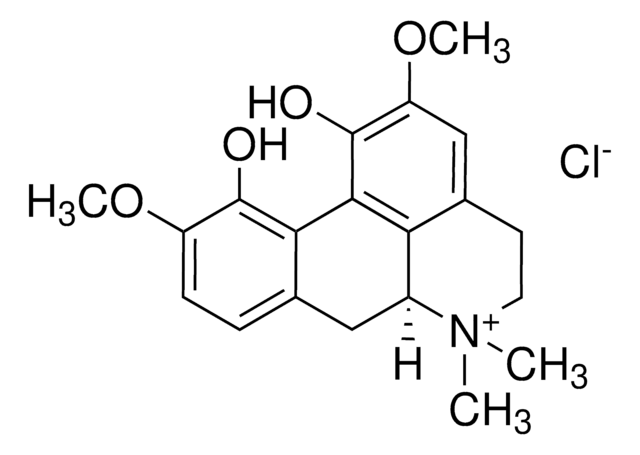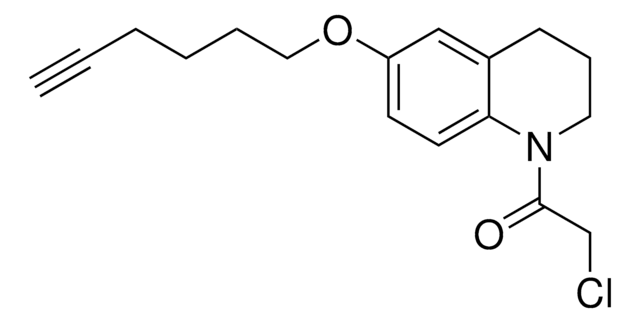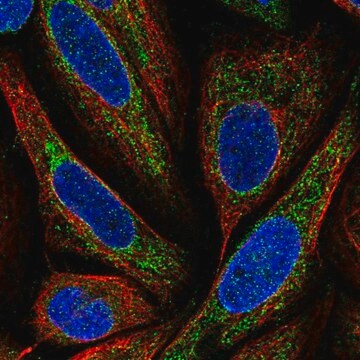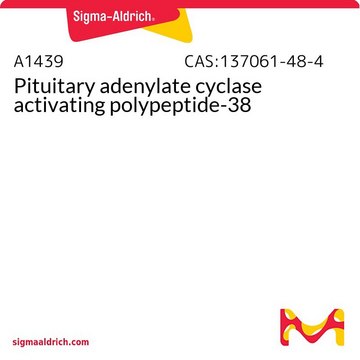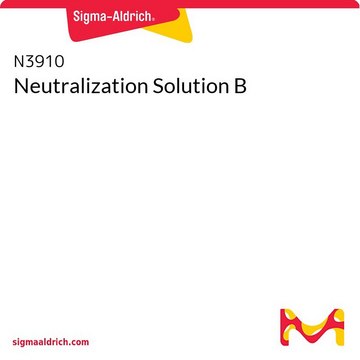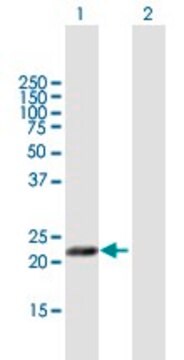PZ0362
CP-640186 hydrochloride
≥95% (HPLC)
Sinônimo(s):
(3R)-Anthracen-9-yl-[3-(morpholine-4-carbonyl)-[1,4′]bipiperidinyl-1′-yl]-methanone hydrochloride, CP 640186 hydrochloride, CP640186 hydrochloride, [(3R)-1′-(9-Anthracenylcarbonyl)[1,4′-bipiperidin]-3-yl]-4-morpholinyl-methanone hydrochloride
About This Item
Produtos recomendados
Nível de qualidade
Ensaio
≥95% (HPLC)
forma
powder
condição de armazenamento
desiccated
cor
white to beige
solubilidade
H2O: 2 mg/mL, clear (warmed)
temperatura de armazenamento
room temp
cadeia de caracteres SMILES
O=C(C1=C2C=CC=CC2=CC3=CC=CC=C31)N(CC4)CCC4N5C[C@H](C(N6CCOCC6)=O)CCC5.[H]Cl
InChI
1S/C30H35N3O3.ClH/c34-29(32-16-18-36-19-17-32)24-8-5-13-33(21-24)25-11-14-31(15-12-25)30(35)28-26-9-3-1-6-22(26)20-23-7-2-4-10-27(23)28;/h1-4,6-7,9-10,20,24-25H,5,8,11-19,21H2;1H/t24-;/m1./s1
chave InChI
DUBNXJIOBFRASV-GJFSDDNBSA-N
Aplicação
Ações bioquímicas/fisiológicas
Código de classe de armazenamento
11 - Combustible Solids
Classe de risco de água (WGK)
WGK 3
Certificados de análise (COA)
Busque Certificados de análise (COA) digitando o Número do Lote do produto. Os números de lote e remessa podem ser encontrados no rótulo de um produto após a palavra “Lot” ou “Batch”.
Já possui este produto?
Encontre a documentação dos produtos que você adquiriu recentemente na biblioteca de documentos.
Nossa equipe de cientistas tem experiência em todas as áreas de pesquisa, incluindo Life Sciences, ciência de materiais, síntese química, cromatografia, química analítica e muitas outras.
Entre em contato com a assistência técnica
